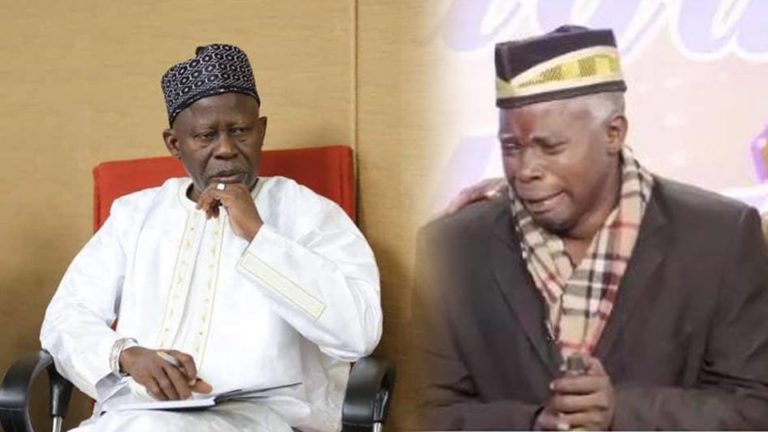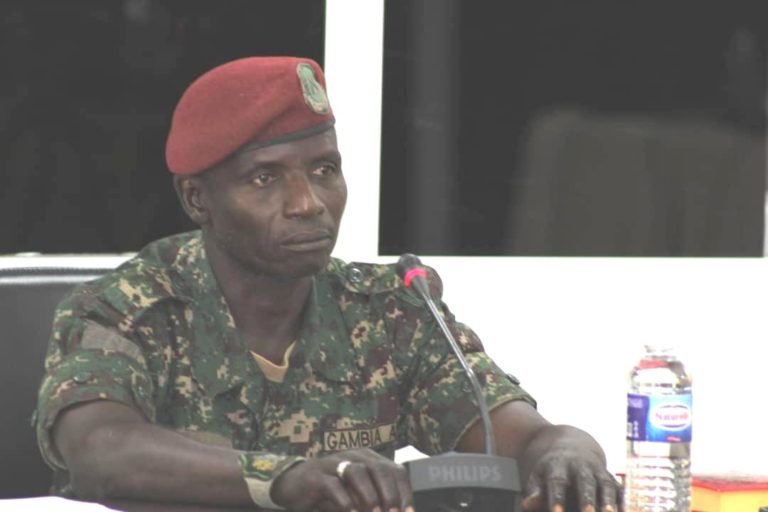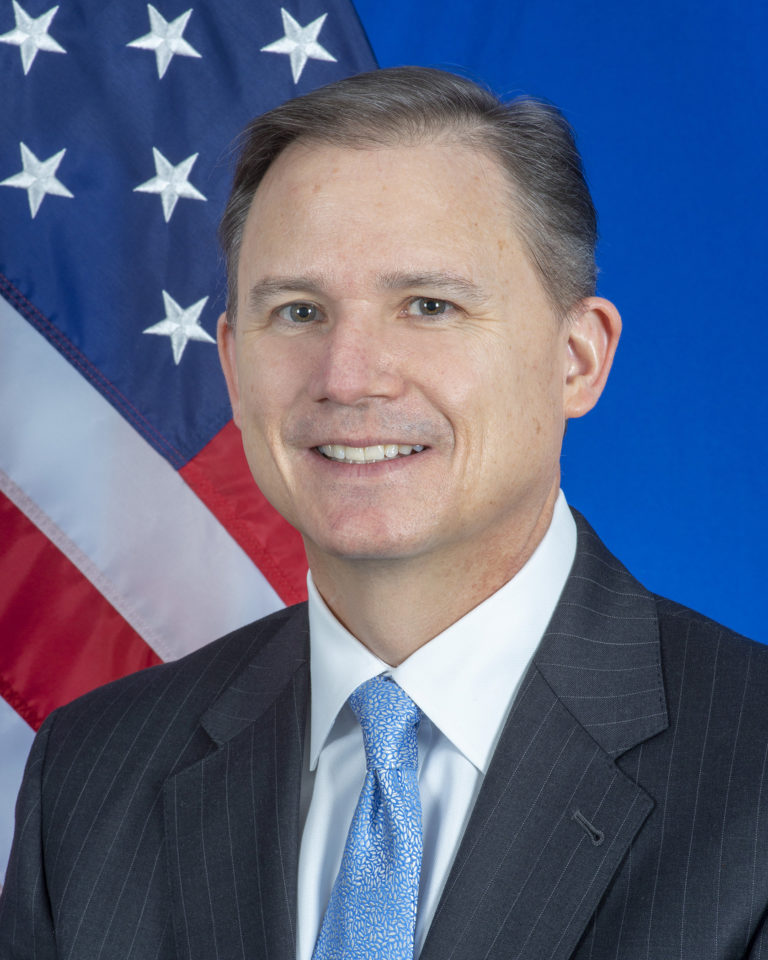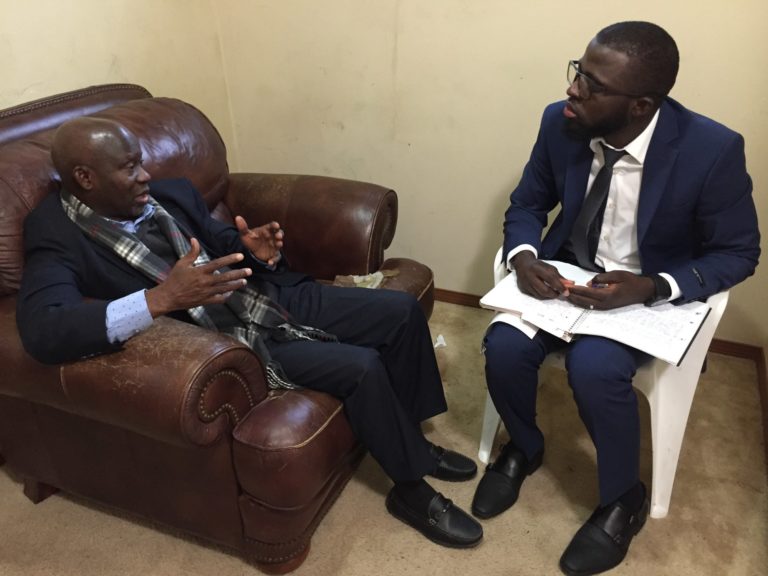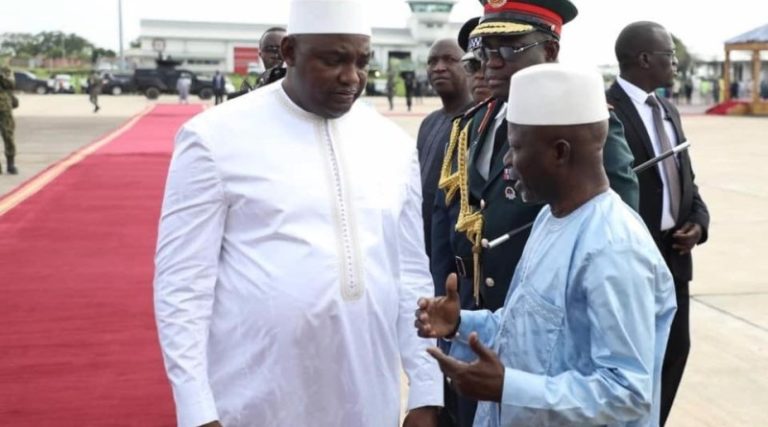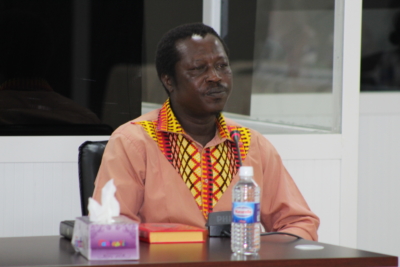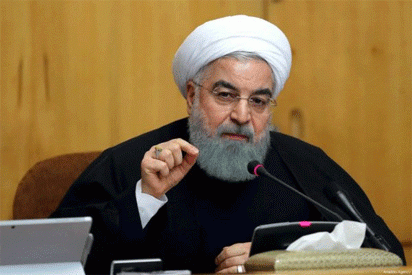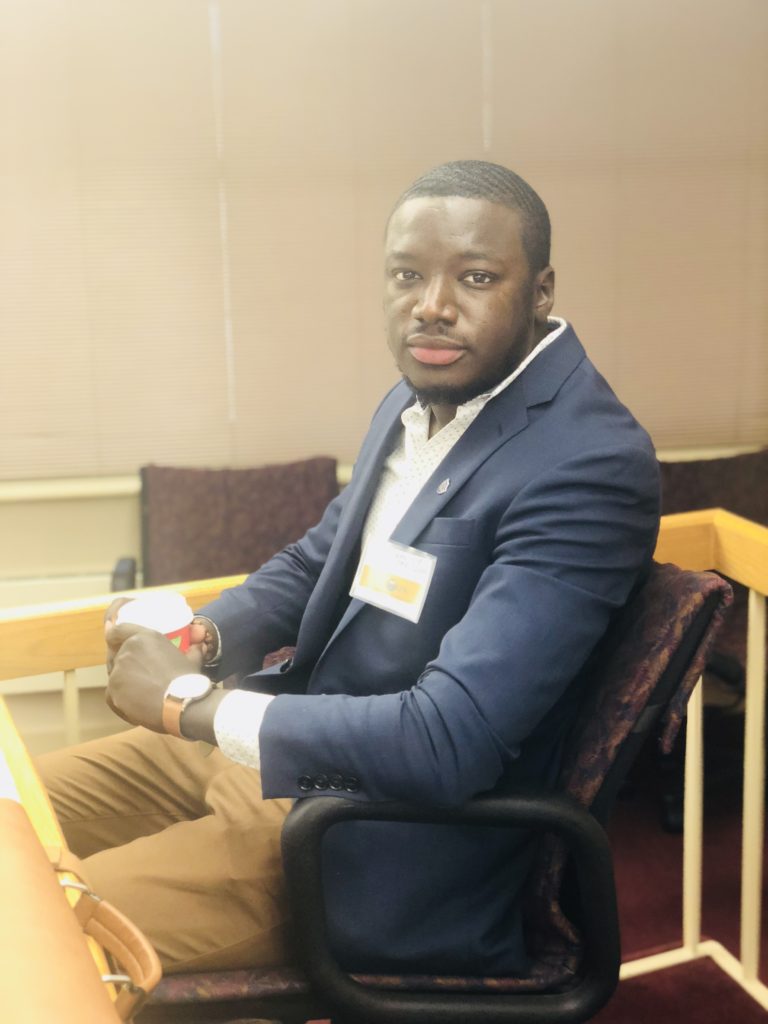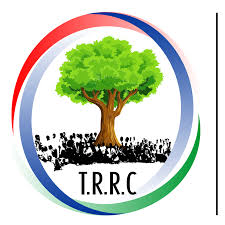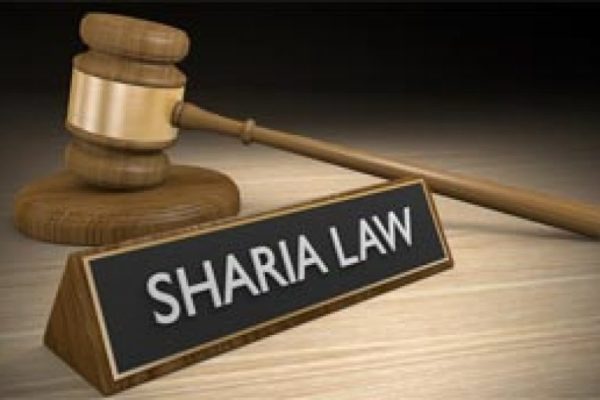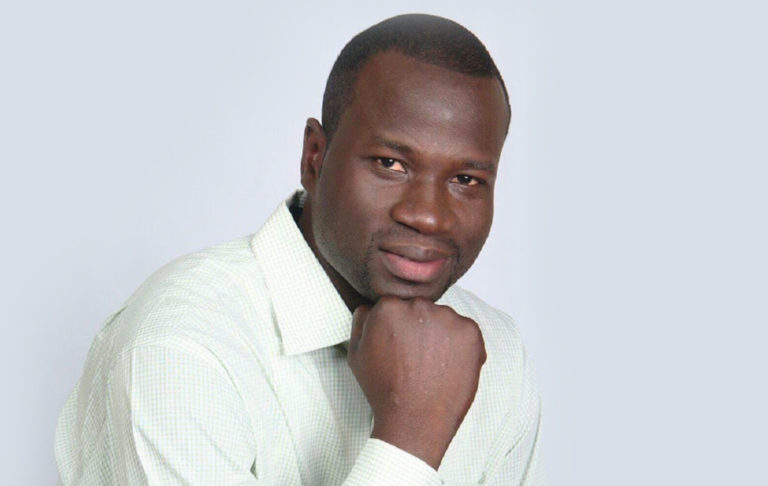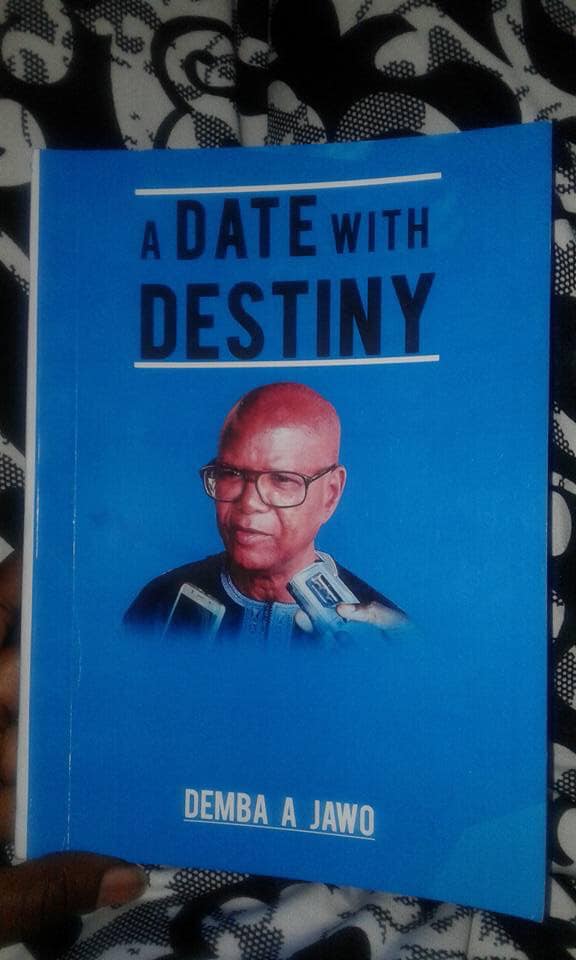Book Review
Launching Ceremony Saturday 23 March 2019, Paradise Suites Hotel, Kololi
By: Madi Jobarteh
Salutations
It is said that a person, in writing about himself or herself, writes about his or her age, its trials and tribulations, triumphs and glories, and wishes and aspirations for the future. The book ‘A Date with Destiny’is therefore not only about the life of the author but also a reflection of our society and struggles within.
For that matter let me make an unsolicited disclaimer on behalf of the author. That is to say that, autobiographies are often blunt, uncharitable, revealing, disturbing, upsetting and unsettling. So is this autobiography. I can tell you that Demba has been mercilessly blunt, frank and unequivocal about himself, family, friends, colleagues and indeed anyone and everyone he has come to interact with over the course of his life including the President of the Republic and the issues that surround them. That notwithstanding this autobiography is devoid of pettiness or bitterness but hugely responsible, forward looking and mature as the author himself!
I have known Demba Ali Jawo for more than 20 years now, I can say, since I started as a cub reporter at Radio Gambia in 1992. I used to know him as an editor at the Daily Observer where I had my first journalist training in June/July 1994 before that 22nd day of infamy erupted to change our lives forever!
Since then until today he has earned my respect and admiration for his stance on fundamental issues in defence of his principles and the common good. It is therefore an immense honour and privilege that he has asked me to review his autobiography – how can a younger man review the life story of an older man, I asked myself when he handed me a copy of the book last week Friday! But this is from where the honour and respect came which has grown exponentially as I read through the pages of ‘A Date with Destiny’!
This book is more than an autobiography. It is a testimony of a man with a mission or should I say, a rebel with a cause! In this book DA, as we affectionately call him, did not only narrate, with so much imagery and metaphor, his birth and childhood as a young Gainako and the circumstances of his family and the Gambia of his youth to adulthood, but DA also gave us insight into his convictions and the trials and tribulations he encountered in the first and second republic to life as a minister. More than a life story ‘A Date with Destiny’is also about a public servant rendering account of his tenure; his performance and the management of affairs and resources entrusted to him as a Minster.
Rest assured that in this book you will notice the same DA as the author of the ‘Focus’column in the erstwhile Daily Observer – blunt, critical, direct but progressive! Let me give you a taste of this fact in few of the pages of this book as he talks about his stint as a Minister. In his final chapter entitled, ‘An Encounter with Reality’ DA acknowledged that while indeed the country suffered a longstanding period of dictatorship during which governance and life revolved around one person however two years is also enough time for a new government to find its footing right.
Unfortunately, his experience in the Cabinet points to a government that is in disarray where ministries and agencies work in parallel with little to no consultation among them – a situation that has constantly put him in embarrassing situations. As the Minister of Information and Government Spokesman then there was huge expectation that he would have had first-hand information on issues, or he could pull and make things happen such as arranging for a foreign television station to interview the President. But the reality was that he was actually hardly involved, consulted or given information!
On foreign travels, DA was honest that indeed given the previously pariah status of the Gambia there was need for ministers to travel to connect the country with the outside world. However, he also acknowledged that a lot of the travels by ministers were too many, unnecessary or could be delegated to other officials or even to embassies abroad so that those minsters could attend to issues at home. It was for this reason that he used to delegate or turn down a lot of the travels to which he was invited.
What he found even more perplexing was the frequency of the President’s travels with huge entourages and on chartered flights. DA has indeed given us an extensive information and analysis of his personal experience and perspectives as a Minister about the current dispensation, highlighting the challenges and missed opportunities. But more importantly he has also given lot of suggestions to the President and his Government including local governments in terms of how to better govern, build institutions and serve the people of the Gambia. At the same time the book has also offered invaluable advice and suggestions to public servants in general and especially to his immediate successor Ebrima Sillah and the current Government Spokesman Ebrima Sankareh while of course also appreciating them for their longstanding friendship.
‘A Date with Destiny’is a beautifully written piece of work; easy to read and understand that gives a very succinct analysis and contrast of many things in the Gambia – society, culture, history, religion, politics, leadership, the flora and fauna of the Gambia and even humour! For example, he lamented the fact that while as Minister scores of people had sought to engage him, befriend him and seek his support, at personal and professional levels, but he became quite shocked to notice how he was immediately abandoned by most of these people as soon as he received his marching orders!
Demba Ali Jawo was born in the village of Choya, a predominately Fula community in the Central River Region in the “beginning of the 1950s” as he said, to his father Ali Mawdo Jamanka and his mother Abbeh Baldeh, both of blessed memory.
DA comes from parents and a community that was traditional in form but liberal in substance. It is no wonder that this man here became a voice for all regardless of ethnicity, gender, nationality or vocation; which is why he can defend any issue or take any position without fear of contradiction because he was guided by universal principles that underpin humanity, learned from his father and mother.
The late Ali Jamanka was one person who would walk from his community to visit their Mandinka neighbours to share milk and pleasantries to discuss issues in order to ease tensions as the cattle of the Fula would encroach on the farms of the Mandinka, a scenario that could have potentially led to a Rwanda-type situation if not well managed. His father addressed that matter in those days.
In this book we therefore see the life of a village boy going to herd the cattle and even sleeping in the kraal when wild animals like hyenas lurk around. In the environs around Choya to the Sofanyama Bolong DA gave us an interesting insight about the fauna and flora of his childhood period when that stream was infested with crocodiles. He laments that due to climate change and human activity including his own, today there are no crocs in that bolong.
As a child DA and his fellow kids would go near the stream to steal crocodile eggs for the family’s evening meal. But the day that young boy, Demba saw a gigantic crocodile on the banks of the stream gaping its mouth wide open – its only when you read this book you will know that even the bravest men and women have something to fear! Yaya Jammeh could not get Demba to flee the Gambia, but a single resting crocodile made him take to his heels! Read the rest in the book!
Demba has been a rebellious type ever since. Anytime his mother placed jujus around his wrist, arms or waist, rest assured Demba will throw them off. When society considered women to be weak Demba, since as a child, believes in the equality of men and women. Like his father he has never raised his hand to hit his wife or children. Thanks to his upbringing around cattle and other animals Demba upholds animal rights. He strongly believes in one-man-one-wife and certainly not in favour of ‘wife inheritance’ as he turned down the offer when his late brother Ilo Sonko died, a man who was extremely instrumental in his education.
‘A Date with Destiny’is an insight into the life of a people, particularly young people in the provinces, a reality that still confronts them – i.e. the limited to lack of facilities and opportunities while beset by several sociocultural barriers. Demba would have never known how to read and write if not for some unpleasant events and the determination of others and of course because of the open-mindedness of his father. It was in 1961 that the catholic Bishop of Banjul visited Choya to hold a meeting with villagers for the possibility of setting up a school there given that the nearest school was in Sare Gainako, six kilometres away.
When the villagers agreed, the plan was each compound would send at least one child to school, and in the home of Ali Mawdo Jamanka, the lucky child was Yero, the younger brother of Demba Ali Jawo! But as fate would have it, Yero unfortunately got sick and therefore could not make it thereby creating the unpleasant opportunity for Demba to go to school. Happy that he was going to school, the story however nearly got sour because his father was adamant that Demba had enough schooling and should now go back to herd the cattle. If not for the determined intervention of Ilo of blessed memory, Demba would have been one of the world’s celebrated Gainako today!
From Mount Carmel School in Sare Gainako and then moving higher to Crab Island Modern Secondary School in Banjul, Demba recounts the people he met and impacted on his life until today. It was headmaster Jacob Baldeh in Mount Carmel who defended his right to put on a beret in class because of ringworms all over his head which embarrassed him in front of his peers. But more significantly thanks to Jacob, Demba was able to secure a guardian in Banjul with Jacob’s brother Pateh who worked in the then Cable and Wireless company so he could go to school. Pateh was unmarried then and despite his meagre income happily accommodated Demba and fellow provincial boys in a strange city with lot of people and cars whose hooting scare the hell out of him! But by then, as he recounts, Banjul was a very clean city with every street paved and people indeed looked after one another, a far cry from what we see today, not only the Banjul but in our entire society!
Demba lived a difficult life nonetheless in Banjul; hunger was his constant companion. Without parents around and with poor guardians, DA had to watch with watery mouth as richer schoolboys would buy ‘nyanbeh nyebeh’ while he gazes incessantly because he had no money to buy for himelf.
In exposing the life of DA, ‘A Date with Destiny’also gives an account of the story of a host of individuals in the 70s who would become the movers and shakers of the Gambia years to come. From Crab Island to Gambia College and eventually into the teaching field, DA built acquaintances with a myriad of folks who would become part of the future leaders of the Gambia. Some became comrades in the fight against dictatorship and others became targets of his resistance!
His college mates included former APRC Vice President Isatou Njie Saidy, former PPP Minister Alkali James Gaye and former IGP Pa Salah Jagne while former Cabinet colleague Badara Joof was not only a friend but was in fact part of his inner circle of friends known as ‘The Gang of Four’ whose other members were Abdou Rahman Sise and Momodou Lamin Faye. It is interesting to note that DA was also a student of the current TRRC Vice Chair Adelaide Sosseh at Gambia College and before that, at Crab Island. The late former Minister Omar Sey, the late Mrs. Belinda Bidwell former Speaker as well as the late Ralphina de Almeida all taught Demba at college! But also, during the first year in teaching practice in 1973, he also taught the current ambassador to the EU Tenengba Jaiteh. The Gang of Four of course expanded eventually to include Imam Baba Leigh, Samsudeen Sarr former deputy CDS under Jammeh and others!
An insight into the nature of the PPP Government came to light as the author moved out of the teaching field to pick up a job in the then GUC, Gambia Utilities Corporation. Not only did he encounter discrimination, favouritism and denial of opportunities but he also became a person of interest because of his writings in The Nation newspaper and his association with its publisher the late William Dixon Coley, the doyen of Gambian journalism! At GUC and living in Haddington Street in Banjul DA’s apartment became known as the ‘Temple’ – a meeting place of many young radicals and an avenue that saw him become hugely active in youth and sporting activities.
While serving as a staff of GUC the author continued to publish articles in The Nation until sometime in 1979 when he was arrested and detained by the police for publishing a very critical article about police administration. It was clear that indeed the time has come for him to abandon his Government job due to harassment and suppression and enter into the journalism field in full to pursue his convictions without fetters.
William Dixon Colley is undoubtedly one of the Gambia’s foremost and bravest, if not the leading human rights and democracy activist ever! It is no wonder therefore that the moment DA encountered this great man, he could never rest until today!
William had an immense impact on DA in every way imaginable and the author loved and respected and admired this patriot beyond measure. In fact many people even came to consider Dixon Colley as his father! It was his association with this great man, at whose office at No. 3 Box Bar Road in Banjul that DA would spend his entire time that he also came to meet many more young people as time went by who were also attached to the doyen!
Among these young people included current presidential adviser Mai Ahmad Fatty, current National Assembly Member Halifa Sallah, former ambassador Sarjo Jallow and former MOJA member Dumo Sarho. DA was scheduled to meet Koro Sallah eventually who was seeking to recruit him to join MOJA when the Kukoie Samba Sanyang insurrection took place in 1981 thus thwarting that meeting in Half Die. Consequently, DA could not become a member of the left-wing group as Koro himself was eventually implicated in that incident and had to flee the country.
Here is the bombshell: Demba Ali Jawo was a founder member of the People’s Democratic Organization for Independence and Socialism (PDOIS) and much more; it was DA who designed the PDOIS flag! Wow!
‘A Date with Destiny’is therefore not just a book about the life of Demba, it is a documentation of the socio-political history of the Gambia. Think of any Gambian of stature in government or business and society today and you will find his or her name in this book! However out of principles and dedication to service as a journalist. DA had abandoned all political affiliation to PDOIS and never to align himself ever again with any political party. This is a trait of all great journalists who wish to remain independent and credible in the eyes of the society that one cannot belong to any group, no matter how well meaning they are! Journalism is DA’s destiny and he has fixed a date with the profession for which he does not wish to betray!
‘A Date with Destiny’is hugely about journalism and one cannot find a more up to date account of the trials and tribulations of the Gambian media than what is provided in this book, particularly with the advent of the military coup in 1994. Not only is the account quite detailed but it is also glaring for the fact that DA was himself a key participant in all of the ups and downs that the media went through under the dictatorship.
In the first place DA described the emergence of the Daily Observer as the beginning of the golden era of Gambian journalism as we saw for the first time a newspaper printed on newsprint and not on an ordinary A3 size xerox paper! But also, in terms of content the earlier emergence of Topic magazine of Nana Grey-Johnson and The Point newspaper of the late Deyda Hydara, the late Baboucarr Gaye and Pap Saine all contributed, together with the Daily Observer, to witness a marked turning point for the Gambian media into modernity, professionalism and recognition!
The life of a journalist in the Gambia is a bitter-sweet story. While Daily Observer in practice also became a school of journalism as it massively churned out large numbers of smart young journalists, at the same time the Jammeh dictatorship ended becoming the beast that also nearly devoured the media to extinction! Yet it was the Gambian media that stood its ground, as a protagonist as well as a tool to be employed by many other forces, not least our political parties to fight that monster to extinction! In traversing the plains of journalism, the book gave an interesting account of the various actors, incidents and issues including the disappointments and threats in which we witnessed physical assaults, arson attacks, assassinations as well as closure of media houses and mass exodus of journalists!
Hence the killing of Deyda became a watershed moment in the life of the media and journalists. As the author narrated, that assassination generated fear, but DA refused to be silenced as he continued to write critical articles against the Government to the discomfort of his family and friends afraid for his safety. Even when DA had a very good paying job in Dakar, he insisted on coming to visit family in Kanifing periodically, against the wishes of his wife, just that Jammeh does not think that he had succeeded in banishing all journalists out of the Gambia.
DA joined the Gambia Press Union in 1980 when Dixon Colley was the Secretary General. DA himself became the Secretary General in 1992 and then president until 1998 when he stepped down. The story of GPU is intertwined with the life of the author who, together with Deyda had to seriously struggle in ensuring that the union survives when there was little support. Not only did the union face resource challenges but it also went through lot of turbulence as internal wranglings among members over benefits nearly derailed it. However, the book reveals that DA traversed a path that was laden with difficulties – from financial to security issues to social pressures and personal fears especially after the death of Deyda!
Life in exile in Senegal brought lot of gain and pain to DA. Not only did he gain a more rewarding job financially and built strong and lasting relationships with a myriad of people and institutions, but he also became a huge source of support to fellow Gambians in Dakar or those Gambians fleeing through Dakar or coming there to seek visas or medical attention. In fact, his kids would tease that their father’s house became a ‘Transit Hotel’ because of the numbers of people who would come by.
Like many Gambians DA joined the current Gambia Government not because he wanted to share in the spoils of war. His fight against the dictatorship was for nothing other than to salvage his country and secure the freedoms and progress of his people including himself, in any walk of life one might be. Hence, he never imagined becoming a minister such that when a request came for him to send his CV to the Government he flatly refused. Thanks to the intervention and encouragement of four remarkable fellow women fighters – Fatou Jagne Senghore, Aisha Dabo, Ndey Tapha Sosseh and Veronic Wright that DA eventually succumbed; and of course, because Pres. Barrow had expressed to him that he admired and also preferred DA to become the Minster of Information.
Life as a minister was indeed instructive for Demba. Instead of the environment becoming smooth and supportive rather DA actually became a victim as soon as he accepted the office of a minister. The book has given a rather vivid picture of the environment inside the Government. DA pointed to a situation of chaos, flaws, missed opportunities and unnecessary reactions. As the Minister of Information and the Spokesperson of the Government DA was not only side-lined on fundamental issues of the Government but was poorly or not consulted at all in many instances and even where he sought answers from even the top, he either gets no response or a very diluted explanation without head or tail!
Indeed, DA did not enjoy his time as a minister. Not only was he excluded and even labelled as ‘Mr. Complain’ because of his incessant demand for answers or explanations, but he became extremely disappointed at the amateurish manner of addressing issues and the failure of the Government to be transparent or accountable.
For example, the confusion about the Brussels roundtable that the Government was coming home with money when only pledges were made could have been better addressed if enough information and engagement was made. Amazingly DA was left out of that meeting. The immature reaction of the President towards Dr. Ismaila Ceesay of UTG or the question ‘where were you’ should not have come from a President. The donation of vehicles or the D11 million provided to pilgrims or the China money transferred into the First Lady’s foundation account are all incidents that were badly handled by State House simply because the necessary sharing of information, coordination and engagement were not taking place. Consequently, DA faced series of embarrassments when he faced local or foreign journalists asking about simple issues about which he had no idea because no one shared information or true information with him.
Not only was DA a victim of exclusion and non-cooperation from even inside the Cabinet, but he faced incessant interference in his ministry on issues such as the liberalization of the International Gateway or the granting of TV licenses to applicants such as the Ahmadiyya among others. DA was seriously committed to transforming the media landscape through legal and institutional reforms but unfortunately received little to no cooperation from Cabinet colleagues including the President except for the Minister of Justice who seemed to recognize and value his role as a fellow minster.
Above all the book gave us insight into the kind of leadership in the country where courtesy and the national interest do not seem to drive the agenda. For example, the author’s termination letter was handed over to him by the Secretary General and he wondered why the President could not have simply invited him to discuss why he was being sacked as a matter of courtesy and leadership. But as the book recounts nothing like that happened in the first place when VP Tambajang or Mai Fatty was sacked. Hence when it was his turn to be also fired unceremoniously, the author acknowledges that he and his Cabinet colleagues must also take blame for that because they also never stood up to enquire from the President why their former colleagues were being sacked. If they had demonstrated such responsibility probably, they would have seen a different and better show of leadership by Barrow next time he wanted to sack a minster. But since they never cared to ask the President, it means the President also considered that he is indeed the bus driver and he can onload and offload minsters as he likes!
DA is not a bitter man after all. Rather his stint in Government gave him a better understating of our society and its circumstances. He came to better understand where our troubles lie and how to solve them. While he seems concerned that there are some invisible forces and interests driving the agenda around Barrow, he however offers quite succinct pieces of advice and recommendations to the President, ministers, local government authorities, fellow journalists and indeed every citizen.
For example, he cited the various cabinet reshuffles as missed opportunities where Barrow could have re-branded himself by adding more women and young people or appoint someone from the other smaller ethnic groups into his Cabinet to reflect diversity and unity of our people. Furthermore, he cited the lack of a Christian in the National Assembly which could have also been addressed if the President had utilised his authority to nominate a Christian person. Rather we see how Barrow further closed his Cabinet to women and youth by appointing more elderly men! He reminded the President to stick to his words as a mark of honour and refuse ‘wakh wahet’ noting that even Abdoulaye Wade could not survive the trick!
In conclusion, I have never been prouder of DA after reading this book. It is rich, blunt and accurate in its information content, objectivity and user-friendly in its consumption! As he said, he and many Gambians supported the Coalition in 2016 to salvage the Gambia and not to seek power and privilege. He remained unflinchingly committed to that agenda as a minister even though he was frustrated and concerned at the limited support of this Government to empower Gambians by protecting fundamental freedoms.
On the Coalition – whether it exists or not, and the political future of the President and the risks and threats, and the intrigues of partisan politics and the rest – I won’t tell you. Read the book!
Thank you for your kind attention.


